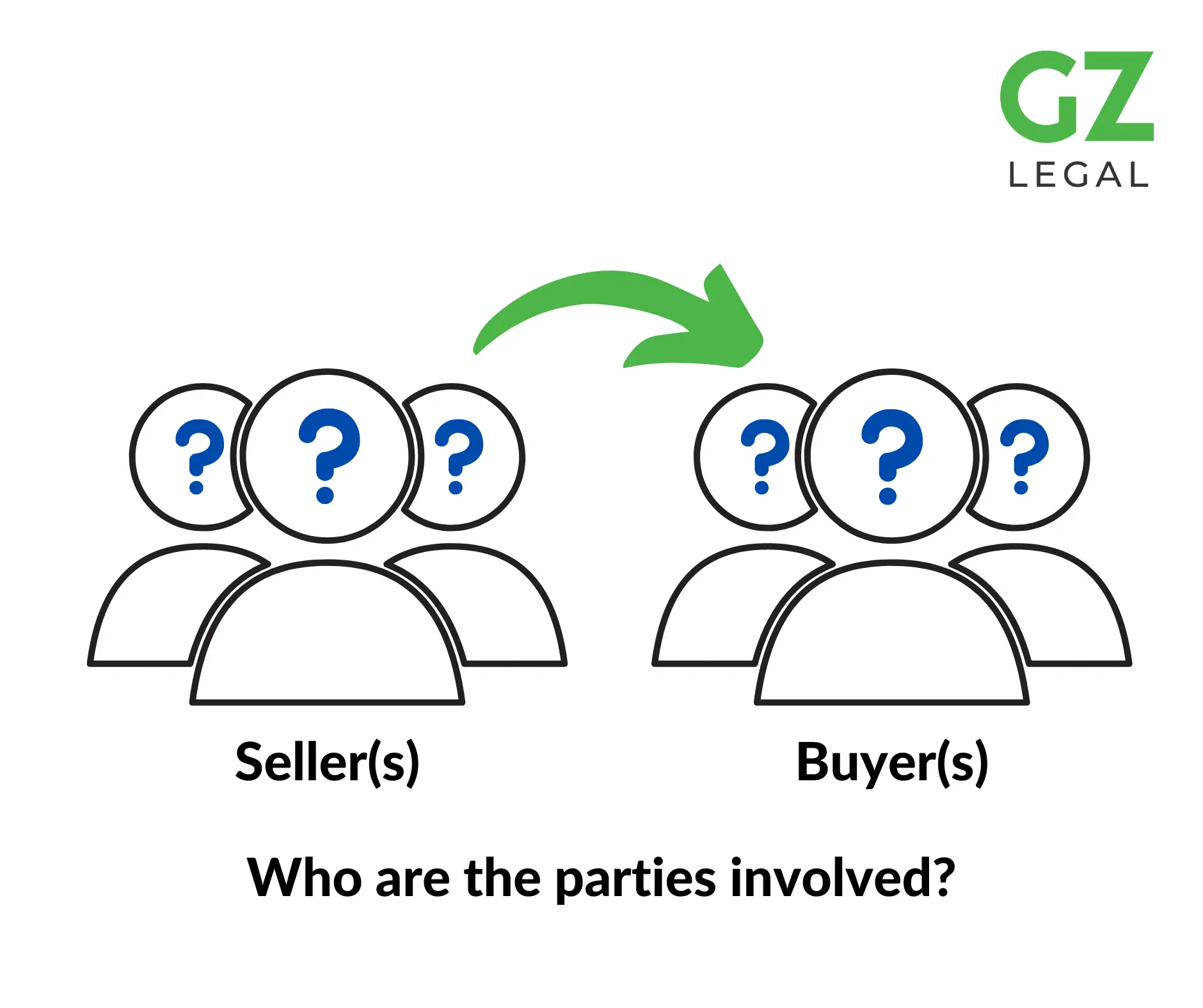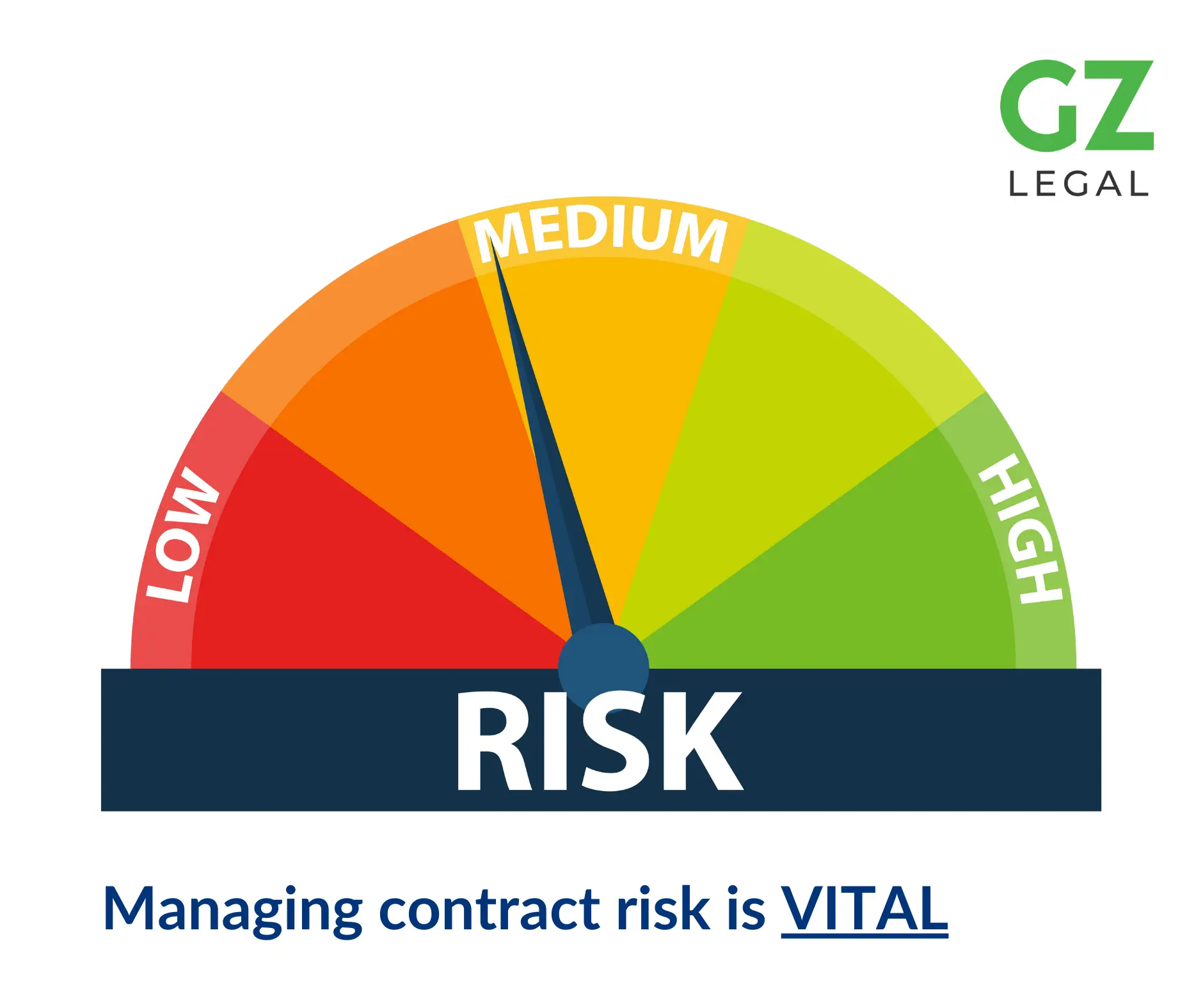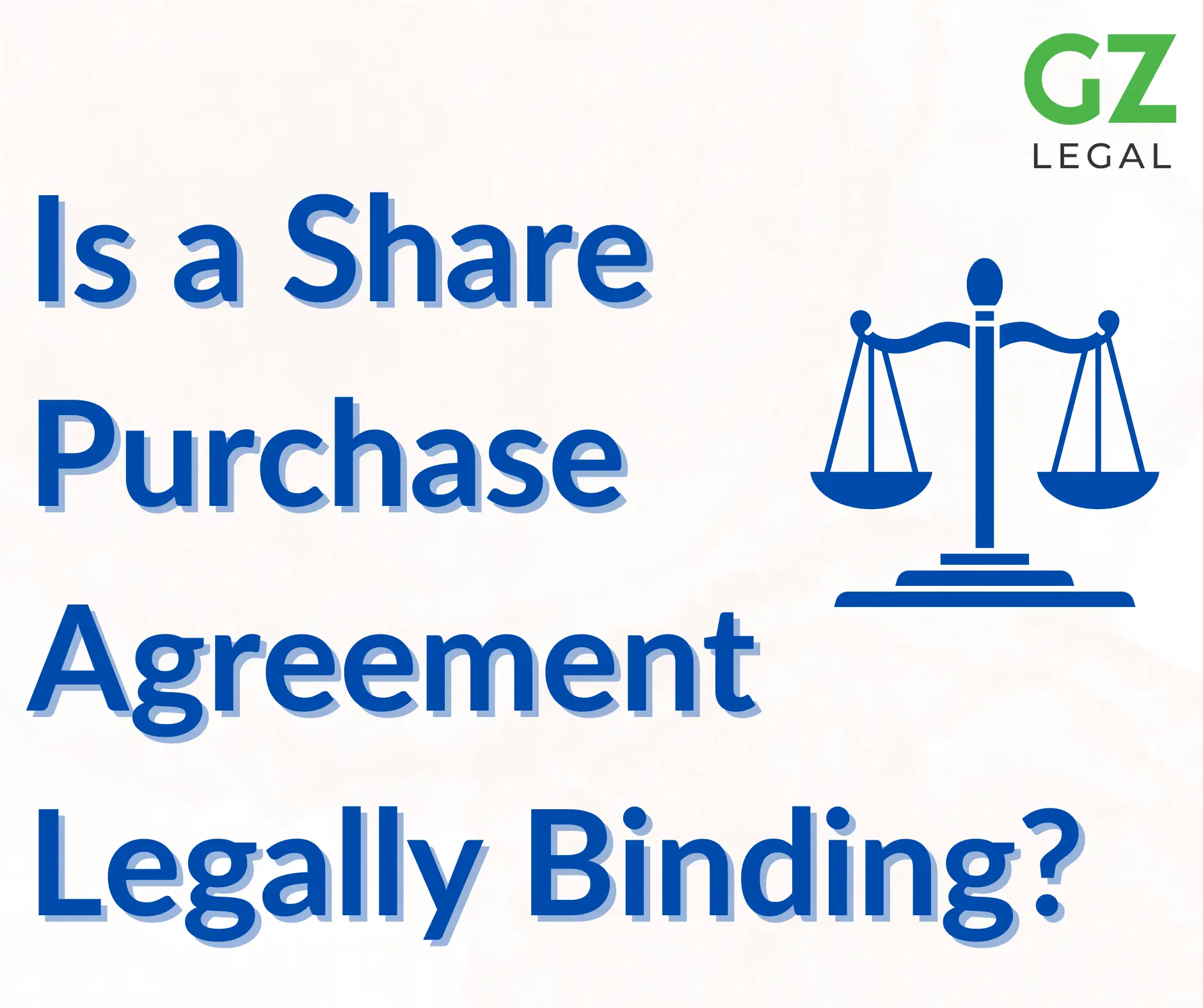Malcolm ZoppiSun Oct 15 2023
Is a Share Purchase Agreement Legally Binding?
For a Share Purchase Agreement to have it’s intended effect, it is vital that it is a legally binding document!
A share purchase agreement (SPA) plays a crucial role in the world of business transactions, especially when shares of a company are being bought or sold. These agreements set out the terms and conditions for the sale and purchase of shares between the buyer and the seller. But are they legally binding?
The answer is yes, SPAs are legally binding documents. Once both parties sign the SPA, they are committed to completing the transaction. The execution of the SPA, as well as the actual completion of the share transfer, typically occurs simultaneously or in quick succession. This ensures a smooth and efficient process for both the buyer and the seller involved in the transaction.
Key Takeaways
- A share purchase agreement is a crucial, legally binding document in business transactions involving share sales.
- SPAs set out the terms and conditions between the buyer and seller, and both parties are committed to completing the transaction upon signing.
- Execution and completion of the share transfer typically happen simultaneously or in close succession for a smooth process.
Essence of Share Purchase Agreements
A share purchase agreement (SPA) plays a crucial role in the process of buying or selling shares in a company. It is a legally binding contract that outlines the terms and conditions relating to the sale and purchase of shares, ensuring a smooth transfer of ownership between the seller and the buyer. By entering an SPA, both parties have a clear understanding of their rights and obligations, helping to avoid any disputes that might arise during the transaction process.
In an SPA, various aspects are laid out, such as the number of shares being purchased, the purchase price, and any warranties or indemnities provided by the seller. It also includes payment terms, conditions precedent (if any), and the parties’ respective representations and warranties. Negotiating the terms of an SPA is essential for both the buyer and the seller, as it helps ensure that their interests are protected throughout the transaction.
The main purpose of a share purchase agreement is to transfer and assign ownership of shares or stock from the seller to the buyer. This is different from an asset purchase agreement, where the seller transfers the legal title of specific assets (such as property or machinery) to the buyer. It is important to note that shares represent a portion of ownership in a company and entitle the holder to certain rights, such as voting and receiving dividends.
Upon signing the SPA, both parties are bound by its terms and conditions, making it a crucial document in any share purchase or sale transaction. In the event of a breach of the SPA, the injured party can pursue legal remedies, such as damages or specific performance. For this reason, if you are involved in a share purchase or sale transaction, it is highly recommended to seek the guidance of experienced mergers & acquisitions lawyers to ensure that all aspects of the agreement are adequately addressed and to minimise the risk of any disputes or legal issues arising.
In summary, a share purchase agreement is an essential legal document that governs the sale and purchase of shares in a company. It sets out the terms and conditions relating to the transaction, thereby allowing a smooth transfer of ownership from the seller to the buyer and protecting each party’s interests.
Legal Framework
When entering into a share purchase agreement (SPA), it is crucial to understand the legal framework that governs these transactions. Since an SPA involves the transfer of shares in a company, it becomes a legally binding contract between the buyer and the seller, outlining the terms and conditions of the sale.
As a buyer or seller, you should seek the assistance of a knowledgeable lawyer to draft and review your SPA. They can help ensure that the agreement protects your interests and complies with the relevant laws and regulations. Your lawyer can identify and manage risks involved with the transaction, allowing you to operate with confidence.
An SPA is legally binding because it contains crucial components required for contracts, such as offer and acceptance, consideration, and the intention to create legal relations. The agreement sets out the rights and obligations of both parties, which means that breaching the terms may result in legal consequences, such as claims for damages or specific performance.
The legal framework governing share purchase agreements may vary depending on the jurisdiction where the transaction takes place. In the UK, the governing law is typically English law, which provides comprehensive rules and regulations on corporate transactions, contractual terms, and remedies. To avoid disputes or misunderstandings, it is imperative to include a clear choice of law and jurisdiction clause in your SPA.
In conclusion, a share purchase agreement is undoubtedly a legally binding contract, and understanding the legal framework that governs it is essential. Engaging the services of a skilled lawyer and being aware of the relevant laws and regulations can help reduce risks and uncertainties, smoothing the path to a successful transaction.
Parties Involved
When entering into a share purchase agreement (SPA), it is crucial to understand the parties involved and their respective roles. In an SPA, the primary parties are the seller, the buyer, and the target company. Here, we shall discuss the roles and responsibilities of each party.

The Seller: The seller is the owner of the shares being sold in the target company. The sellers may be individuals, companies, or a combination of both. Their primary responsibility is to disclose accurate information about the target company and its assets, performance, and liabilities. They also need to verify that the shares sold are free from any encumbrances and provide warranties and indemnities to the buyer.
The Buyer: The buyer is the party acquiring the shares in the target company. Their responsibilities include conducting thorough due diligence on the target company and negotiating the terms of the SPA. Once the transaction is complete, the buyer will assume ownership and control of the shares acquired.
The Target Company: The target company is the entity whose shares are being bought and sold. It can be a private or public limited company. Although not a direct party to the SPA, it plays a significant role in the due diligence process. The target company must provide accurate and up-to-date information about its business, financials, and legal standing to both seller and buyer, enabling them to make informed decisions about the transaction.
In conclusion, an SPA is a legally binding contract between the seller and buyer with the target company playing a crucial role in the process. Understanding the roles of each party involved helps in ensuring a smooth transaction and mitigating potential risks.
Terms of the Agreement
When drafting a share purchase agreement (SPA), it is crucial to clearly outline the terms and conditions that both parties need to meet. In this section, you’ll learn about some key elements typically included in an SPA and how they provide a legally binding framework to govern the transaction.
The parties involved in the SPA must be correctly identified, detailing the buyer, the seller, and the company whose shares are being bought. Accurate details are essential as all parties will be legally bound by this agreement.
One of the most critical aspects of an SPA is defining the commercial terms. These terms refer to the specifics of the transaction, including the number of shares being bought or sold, the share price, and any adjustments that could be made based on the company’s financial performance or other factors. Clarity in these terms helps avoid confusion and disputes in the future.
Conditions precedent are provisions within the SPA that must be satisfied before the transaction can be completed. These conditions can be diverse, ranging from obtaining necessary consents from third parties or regulatory authorities to the completion of due diligence by the buyer. Incorporating such conditions helps to ensure that all important aspects have been addressed before the deal becomes legally binding.
Laying out the comprehensive terms and conditions within the SPA ensures that both parties understand their obligations and rights. These include the representations and warranties provided by the seller, any indemnities offered by the seller in case of future liabilities, and clauses that outline the completion process and post-completion matters, such as any restrictive covenants or obligations to provide support in transferring control to the buyer.
By carefully considering each of these elements and ensuring they are clearly articulated in your SPA, you can have confidence that the agreement will protect your interests and create a legally binding foundation for a successful transaction.
Due Diligence in Share Purchase Agreements
When entering into a share purchase agreement, conducting thorough due diligence is essential to protect your interests and ensure a successful transaction. Due diligence is the process in which you carefully investigate the target company and its business to reveal any potential risks, obligations, and liabilities.
To begin the due diligence process, you should compile a comprehensive list of documents and information relevant to the target company. This may include financial records, company assets, pending legal issues, and details of all key contracts. It is essential to analyse these documents in great detail, as they provide valuable insight into the stability and growth potential of the business.

In addition to scrutinising the documents, it may be necessary to conduct interviews with the target company’s employees and key personnel. This could offer further insight into business performance, particularly if you have concerns about certain aspects of the company’s operations.
When reviewing contracts, you should pay particular attention to any terms that could affect the share purchase, such as change of control clauses or payment obligations. Identifying these elements will help to avoid unexpected surprises and give you a better understanding of the company’s legal obligations.
Finally, it’s crucial to have a clear and comprehensive understanding of the target company’s financial health and any potential liabilities. This might involve examining recent financial statements, taking note of any outstanding debts, and understanding the company’s tax commitments.
By being thorough in your due diligence process, you can make an informed decision about the share purchase and better protect your interests. Remember, completing due diligence is a crucial step in ensuring a successful and legally binding share purchase agreement.
Financial Aspects
When entering a share purchase agreement (SPA), it is important to carefully consider the financial aspects of the transaction. As a buyer, you need to understand the various factors that can affect the value of the shares and the payment terms. In this section, we will explore some key financial components, including the price, purchase price, valuation, deferred payments, and payment terms.
The price of the company’s shares is a crucial factor in any SPA. It is typically determined through a negotiation process between the buyer and seller, taking into account factors such as the market conditions, the financial performance of the company, and any potential risks associated with the business. Ensure you have a clear understanding of the factors influencing the share price to make an informed decision.
The purchase price is the total amount you will pay for the acquired shares. It may be subject to adjustments, such as for net working capital, net debt, or other pre-defined factors. It is essential to thoroughly review the SPA’s provisions relating to purchase price adjustments, as they can significantly impact the final purchase price paid when you pay for the shares.
Proper valuation of the target company is vital, as it directly influences the price you are willing to pay for the shares. Engaging a professional financial adviser can help ensure the valuation process is rigorous and accurate.
Deferred payments or earn-outs may be incorporated into the SPA as a means of spreading the purchase price over a specified period. This can be beneficial for both parties, as it allows the buyer to pay a portion of the purchase price based on the future performance of the acquired company. However, be cautious of potential challenges related to measuring performance metrics and the impact on control if the seller remains involved in the management of the company.
Finally, the payment terms of an SPA should be clearly defined, specifying when the payments are due and the method by which they will be made. Ensure you understand your obligations as a buyer, and be prepared to meet these financial commitments in the agreed-upon timeframe.
By carefully considering the financial aspects mentioned above, you will be better equipped to navigate the complexities of a share purchase agreement and make informed decisions throughout the acquisition process.
Warranties and Indemnities
In a share purchase agreement, both parties, the buyer and the seller, often require certain protections like warranties and indemnities to manage risks involved in the transaction. Understanding these two concepts is crucial for ensuring a fair and legally binding agreement.
Warranties are statements made by the seller about the state of the company being sold, including its assets, liabilities, and other key aspects. These statements serve as a base for the buyer to rely on when evaluating the company’s value. If any of these warranties turn out to be false or incorrect, the buyer can claim damages from the seller, typically to the extent that the value of the company has been reduced.
Indemnities are a further assurance provided by the seller, committing to bear the costs of specific liabilities that may arise after the transaction. Unlike warranties, indemnities do not require the buyer to prove that the company’s value has been reduced as a result of the liability. Indemnities serve to place the risk of such liabilities entirely on the seller.
It is essential for both buyers and sellers to negotiate the appropriate balance of warranties and indemnities in a share purchase agreement. Buyers may push for more indemnities to minimise their risk, while sellers may resist providing excessive indemnities to avoid future liabilities. Often, compromises are made to achieve a fair distribution of risk between the two parties.
While drafting a share purchase agreement, you need to identify the areas that require warranty and indemnity protection. Some common areas of warranty protection include:
- The company’s financial position
- Compliance with applicable laws and regulations
- Ownership and maintenance of assets
- Intellectual property rights
It is worth mentioning that warranties and indemnities have certain limitations and exclusions. These limitations may include time and financial limits on claims, awareness and disclosure provisions, and other specific circumstances negotiated between the parties.
In conclusion, warranties and indemnities play a vital role in share purchase agreements, helping to allocate risk and protect both the buyer and the seller. Carefully considering and negotiating these provisions can contribute to a smoother transaction process and a legally binding agreement that serves the interests of both parties.
Risks and Compliance
When entering into a share purchase agreement (SPA), it is crucial to understand the potential risks and ensure compliance with legal requirements. This will help you avoid disputes and safeguard your interests in the transaction.
One of the primary risks associated with a share transfer is that the buyer might not be fully aware of the target company’s financial position and liabilities. To mitigate this risk, it is essential to conduct thorough due diligence before proceeding with the sale of shares. This includes reviewing the target company’s financial statements, assets, and contracts to confirm the accuracy of information provided during negotiations.

Confidentiality is another critical aspect of a share purchase transaction. You should ensure both parties sign a confidentiality agreement to protect sensitive information and prevent potential leaks that could harm the business or impact the transaction’s success.
Compliance with regulatory requirements is paramount when selling shares. You must obtain the necessary approvals and consents from regulatory authorities, as well as adhere to corporate governance guidelines. This may include notifying and gaining approval from shareholders, fulfilling certain corporate formalities, or transferring specific licences.
In a SPA, it’s vital to ensure accurate disclosures are made by the seller. Failure to disclose pertinent information or providing misleading information could expose you to claims for breach of warranty or misrepresentation. To avoid potential disputes, make sure the SPA contains comprehensive warranties and representations that accurately reflect the target company’s position.
Moreover, it’s essential to consider tax implications and potential liabilities arising from the sale of shares. Engage a tax professional to help you understand these implications and ensure you meet tax-related obligations.
In conclusion, understanding the risks and ensuring compliance with legal requirements is vital when entering into a share purchase agreement. By conducting thorough due diligence, maintaining confidentiality, obtaining necessary approvals, and making accurate disclosures, you can protect your interests and achieve a successful transaction.
Tax Implications
When dealing with a share purchase agreement, it’s crucial to understand the tax implications for both the buyer and the seller. As a buyer, you should be aware of the potential taxes that may arise from purchasing shares in a company. Similarly, as a seller, you need to be prepared for the taxes associated with selling your shares.
One of the main considerations in a share purchase agreement is the tax covenant. A tax covenant is a legally binding agreement between the buyer and the seller that outlines their respective responsibilities for the target company’s tax liabilities, particularly for any that have arisen previously, since they stay with the company after the sale. The tax covenant helps allocate tax risks and responsibilities between both parties, ensuring a fair and balanced transaction.
For the buyer, a significant tax implication to consider is the potential for double taxation. This occurs when the target company has undistributed profits and the buyer plans to distribute these profits after the acquisition. In such a case, the target company may be subject to corporation tax on the profits, and the buyer may face additional tax on the distribution of these profits. To avoid this issue, it’s essential to structure the transaction in a tax-efficient manner, such as using a holding company to mitigate the tax burden.
Another tax implication for buyers is the possible loss of tax reliefs and allowances. The purchase of shares may lead to a change in the target company’s control, which could impact the company’s eligibility for specific tax reliefs. As a buyer, it’s essential to be aware of these potential consequences and work alongside professional advisors to structure the transaction accordingly.
For sellers, a primary tax consideration is capital gains tax. Generally, when you sell shares in a company, you may be subject to capital gains tax on the increase in the value of the shares since you acquired them. To potentially reduce the amount of capital gains tax payable, sellers should explore the option of claiming any available reliefs.
In conclusion, tax implications play a crucial role in share purchase agreements and their negotiation. By understanding the potential tax consequences for both the buyer and the seller, you can ensure a more informed decision-making process and a smoother transaction. Always consult with tax and legal professionals to ensure compliance with tax regulations and the most tax-efficient transaction possible.
Completion Process
During the completion process of a share purchase, you’ll find that it is a vital stage in finalising the transaction. The process starts when both parties involved in the share purchase have agreed on the terms, exchanged necessary legal documents, and are prepared to legally transfer the shares.
It’s essential to remember that the share purchase agreement becomes legally binding once it’s executed by both parties. Following this, the process of completion may either occur simultaneously or in quick succession to the execution of the agreement.
Throughout the completion stage, the sale and purchase of the shares are finalised with the transfer of ownership taking place. This may involve various tasks such as updating the company’s records, making necessary payments, and ensuring all conditions precedent are satisfied.
As you navigate through the completion process, maintain a clear and thorough record of all documentation exchanged. This includes crucial information such as due diligence findings, regulatory approvals, and any post-completion steps that may require attention.
While the process may seem daunting, it’s important to approach it with confidence and to seek legal advice and the guidance of knowledgeable professionals, as necessary. By doing so, you will ensure a smooth and successful share purchase transaction, protecting your interests throughout the process.
Frequently Asked Questions
What are the key clauses in a share purchase agreement?
A share purchase agreement (SPA) typically includes several other key provisions or clauses that outline the terms and conditions of the transaction. These may include:
- Sale and purchase of shares: This clause specifies the number of shares being sold, the purchase price, and the payment terms.
- Warranties and indemnities: These provisions protect the buyer and seller against potential liabilities and losses arising from the transaction.
- Conditions precedent: These are conditions that must be satisfied before the transaction can be completed, such as obtaining necessary regulatory approvals or completing due diligence.
- Confidentiality: This clause ensures that both parties maintain confidentiality regarding the transaction and any sensitive information shared during negotiations.
How can one terminate a share purchase agreement?
Termination of a SPA typically depends on the specific terms and conditions agreed upon by both parties. Common reasons for termination may include:
- Failure to fulfil conditions precedent within a specified timeframe
- Breach of representations, warranties, or covenants by either party
- Mutual agreement by both parties to terminate the agreement
In such cases, the agreement may specify consequences or remedies for termination, such as forfeiture of a deposit or payment of damages.
Are share purchase agreements necessary?
A share purchase agreement is crucial when buying or selling shares in a private company. It documents the terms of the transaction, reduces the risk of misunderstandings, and legally binds both parties to their respective obligations. Additionally, an SPA helps ensure the transfer of ownership adheres to applicable laws and regulations.
What occurs after signing a share purchase agreement?
After signing an SPA, the parties will generally work towards fulfilling any outstanding conditions, such as obtaining required approvals or consents. Once these conditions are met, the transaction can proceed and the shares will be transferred from the seller to the buyer. Following the completion of the transaction, the buyer will typically update the company’s register of members to reflect the new ownership of the shares.
What is the impact of a share purchase agreement?
A share purchase agreement impacts both the buyer and seller. For the buyer, it allows them to acquire ownership, rights, and responsibilities associated with the shares in the company. For the seller, an SPA enables them to exit the business, monetise their investment, and transfer any potential liabilities to the buyer.
Find out more!
If you want to read more in this subject area, you might find some of our other blogs interesting:
- Step-by-Step Guide on How to Transfer Shares to a Holding Company
- Breach of Settlement Agreement: Consequences and Remedies Explained
- Who Gets the Money When a Company is Sold?
- What is a Counter Offer in Contract Law? Explained Simply and Clearly
- Understanding the Costs: How Much Do Injunctions Cost in the UK?
This document has been prepared for informational purposes only and should not be construed as legal or financial advice. You should consult with appropriate professionals before buying or selling a company. Additionally, this document is not intended to prejudge the legal, financial or tax position of any person buying or selling a company.
